Must Have Organic Plants for a Beginner's Garden
Hey there, fellow green thumbs! Are you ready to embark on a delightful journey into organic gardening? Whether you have a spacious backyard or a tiny balcony, cultivating your own organic garden can bring immense joy and fulfillment. This article explores ten must-have organic plants perfect for beginners. But before we dive into our list, let's go back to the basics and understand why organic gardening is a fantastic choice.
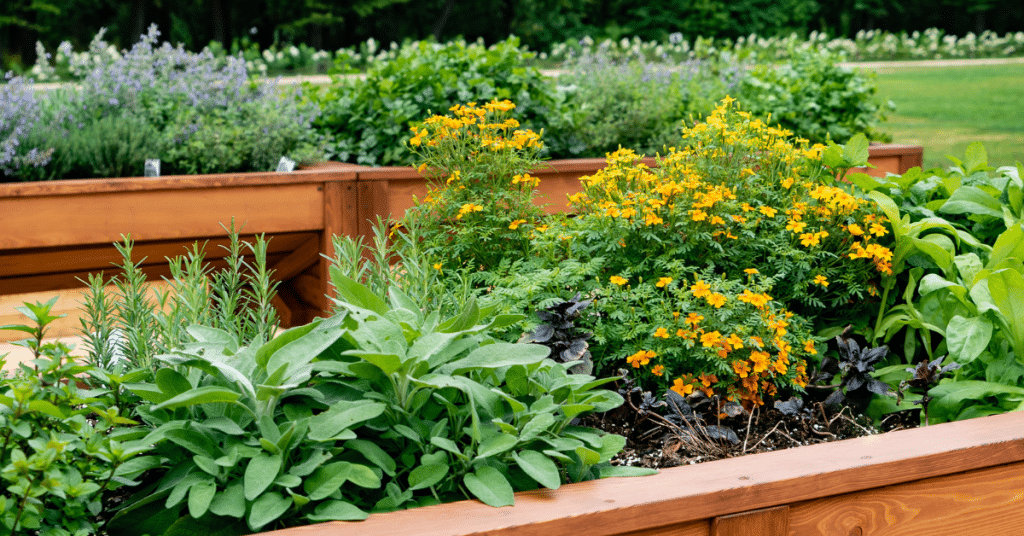
Picture this: You step outside, take a deep breath, and are greeted by the vibrant colors and invigorating scents of nature. You can experience this bliss in your backyard with organic gardening. Not only does it allow you to grow your own fresh organic produce, organic fruits and beautiful flowers, but it also promotes sustainability and environmental consciousness.
The Beauty of Simplicity: Organic Gardening Made Easy
One of the great things about organic gardening is its simplicity. You don't need a green thumb or a degree in horticulture to succeed. All you need is enthusiasm, a bit of knowledge, and a willingness to learn. Organic gardening emphasizes natural methods, avoiding synthetic fertilizers and pesticides that harm the environment and your health.
Compost, organic fertilizers, and beneficial insects can create a thriving ecosystem in your garden. This nourishes your plants and supports the well-being of pollinators like bees and butterflies. Organic plants are flavorful, making your homegrown meals even more delicious and nutritious.
Sun, Soil, and Water
Now that we're all excited about organic gardening, let's talk about the key elements for success: sunlight, soil, and water. Plants are like sun-seeking solar panels, so choosing a spot for your garden that receives at least six hours of direct sunlight daily is crucial. Remember that different plants have varying light requirements, so plan accordingly.
Next, let's dig into the soil. Healthy garden soil is the foundation of a thriving garden. Ensure your soil is well-draining, loose, and rich in organic matter. You can make a compost pile from organic material to improve its structure and fertility. Remember, happy roots make happy plants!
Water, the elixir of life! Just like us, plants need water to survive and thrive. Give them a good drink whenever the top inch of soil feels dry, but avoid overwatering, as it can lead to root rot. Water deeply and infrequently to encourage deep root growth and stronger plants.
Nurturing Nature
Before we wrap up this introduction, let's talk about the mindset of an organic gardener. Gardening is a continuous learning experience, and making mistakes is okay. Embrace the process and view challenges as opportunities for growth. Get to know your plants, observe them closely, and adapt your gardening practices accordingly.
Remember, gardening is not just about the end result; it's about the journey. Enjoy nurturing plants, from tiny seeds to flourishing wonders, and producing organic foods and fruits. Get ready to experience the wonders of organic vegetable gardening as we explore the ten must-have organic plants for beginners in the next section.
Top 10 Must-Have Organic Plants for Your Organic Vegetable Garden
1. Basil
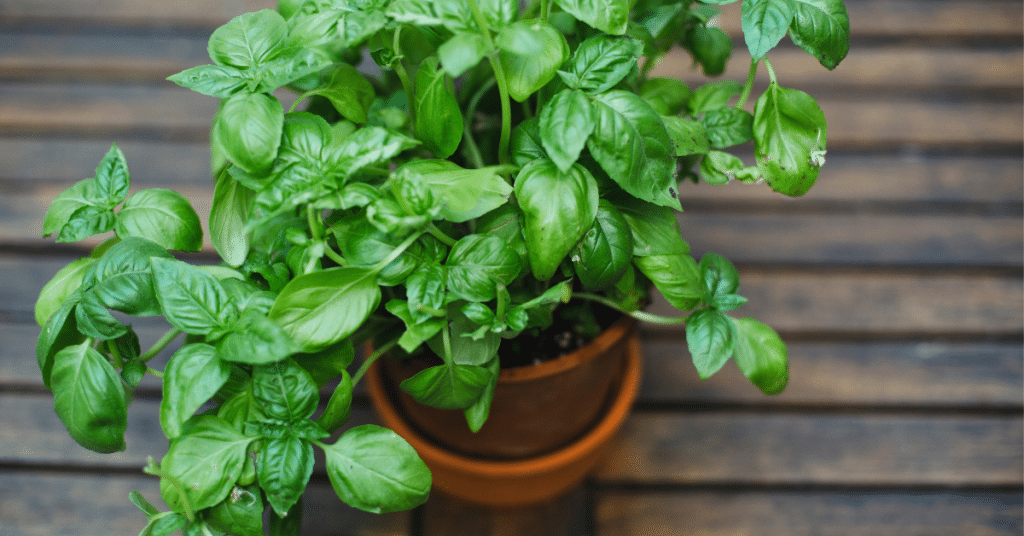
Let's start our journey through the top ten must-have organic plants with a classic herb that belongs in every beginner's garden: basil. This aromatic herb is known for its delightful fragrance and culinary versatility. Whether adding it to pasta sauces, salads, or homemade pesto, fresh basil elevates the flavor profile of any dish.
Basil thrives in warm weather and requires ample sunlight, so find a sunny spot in your garden or use containers if you have limited space. It prefers well-draining soil and appreciates regular watering to keep it happy and productive. Pinch off the flowers to encourage leaf growth and prevent the plant from going to seed too soon.
2. Tomatoes
Who can resist the juicy allure of homegrown tomatoes? These vibrant fruits are a staple in many gardens and for a good reason. From cherry tomatoes bursting with sweetness to beefsteak tomatoes perfect for sandwiches, there's a variety for every taste bud.
Tomatoes thrive in full sun and get at least six hours of direct sunlight daily. Plant them in well-draining soil enriched with organic matter, and support the vines as they grow. Regular watering is essential, especially during hot summer days, to prevent the soil from drying out. With a little care, you'll soon be enjoying the bountiful harvest of your tomato plants.
3. Cucumbers
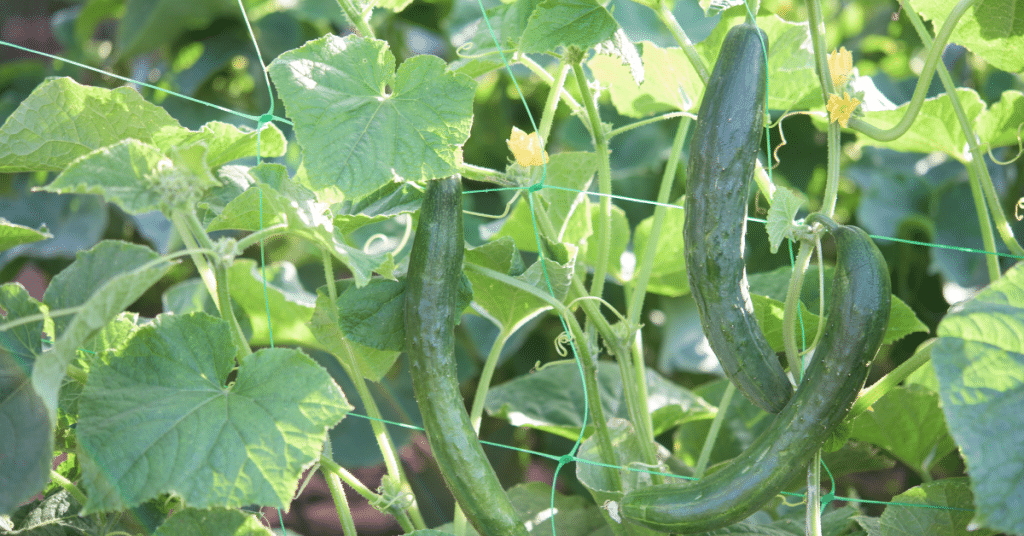
Cucumbers are refreshing and hydrating vegetables that are perfect for salads and pickling. They can be grown in both gardens and containers. Plant cucumber seeds or seedlings in the spring, ensuring they are spaced apart to allow for proper growth.
Provide regular watering to keep the soil moist but not waterlogged. As the plants grow, consider using trellises or stakes to support the vines and encourage upward growth. Regularly harvest the ripe cucumbers to promote continuous production throughout the season. Enjoy the crisp and delicious cucumbers in salads, sandwiches, or as a healthy snack.
4. Zucchini
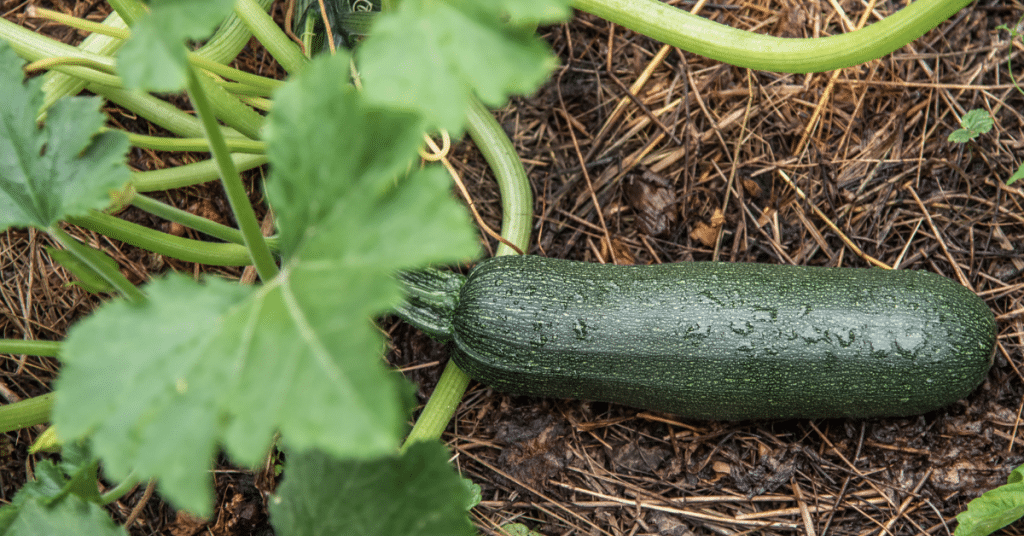
Next on our list is the versatile zucchini. This summer squash is delicious and incredibly prolific, making it a rewarding addition to any beginner's garden. Zucchini plants produce abundant harvests; you'll be amazed at how quickly they can grow.
Zucchini plants require full sun and well-draining soil rich in organic matter for optimal growth. Adequate spacing between plants allows for good air circulation and helps prevent diseases. Regular watering, especially during dry spells, is crucial to hydrate the plants. Harvest the zucchini when they're young and tender for the best flavor. Be prepared for a bountiful harvest that will inspire you to explore various zucchini recipes.
5. Spinach
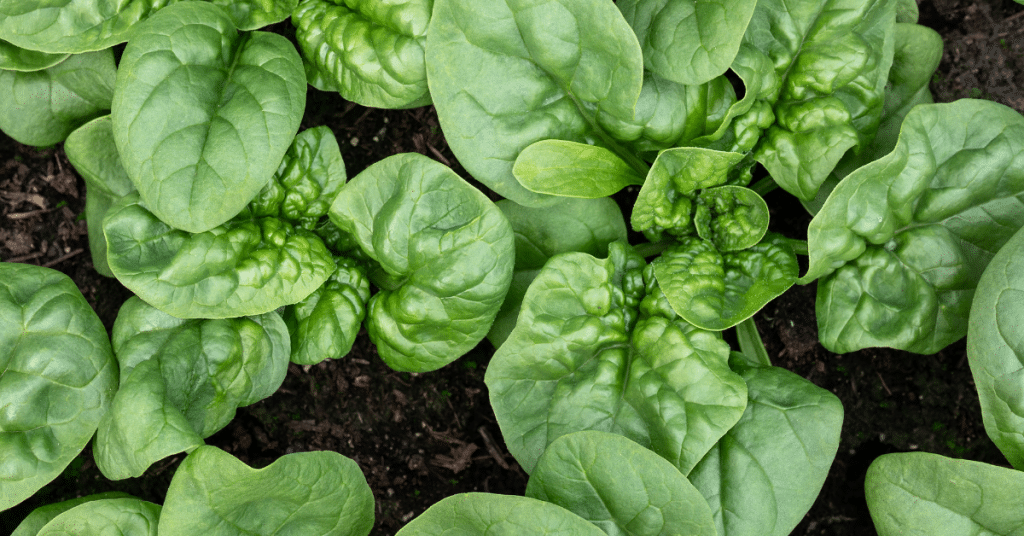
Spinach is a nutrient-dense leafy green vegetable packed with vitamins, minerals, and antioxidants. It's a great addition to salads, smoothies, and cooked dishes.
Choose a sunny spot with well-drained soil, remove weeds, and add compost. Plant spinach seeds 6 inches apart, cover lightly with soil, and water gently. Keep the soil moist as the plants grow. Harvest in 6-8 weeks by picking the outer leaves or the whole plant. Enjoy fresh salads, smoothies, or cooked dishes.
6. Lavender
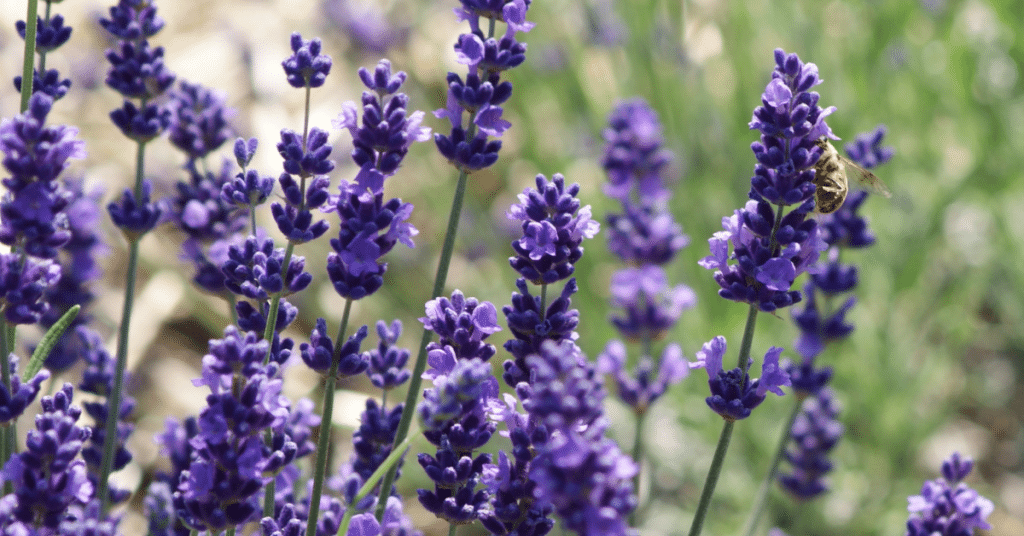
Lavender has a sweet floral scent and is used in perfumes, soaps, and candles. Culinary lavender adds a unique flavor to dishes and is used in baking and herbal teas.
Lavender is an easy-to-grow herb known for its fragrant flowers. Choose a suitable variety for your climate, find a sunny spot with well-drained soil, and plant lavender seeds or young plants. Water regularly during the initial growth period, but avoid overwatering. Prune the plants to promote bushier growth, and harvest the flowers when in full bloom for various uses. Remember to consult local gardening resources for specific care advice. Enjoy the beauty and aroma of your lavender plants!
7. Marigolds
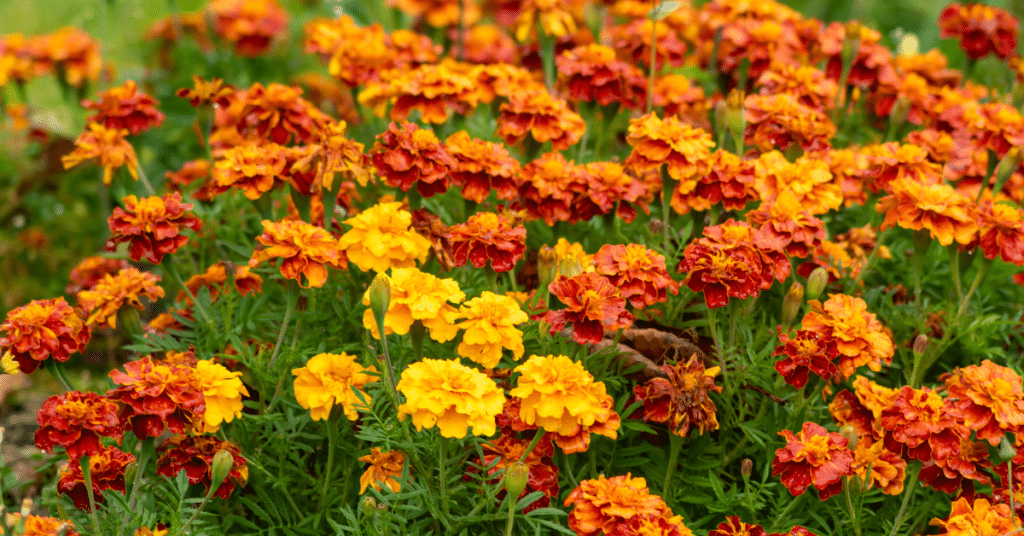
Marigolds are more than just pretty flowers; they're nature's pest-repellent and a welcome addition to any organic garden. These vibrant blooms not only brighten up your garden but also help deter unwanted pests.
Plant marigolds in a sunny location with well-draining soil, and watch as they attract beneficial insects like ladybugs and lacewings while repelling pests like aphids and nematodes. Marigolds are low-maintenance plants that require moderate watering, making them an excellent choice for beginners. Enjoy the beauty of marigolds while they work their magic to protect your other plants.
8. Strawberries
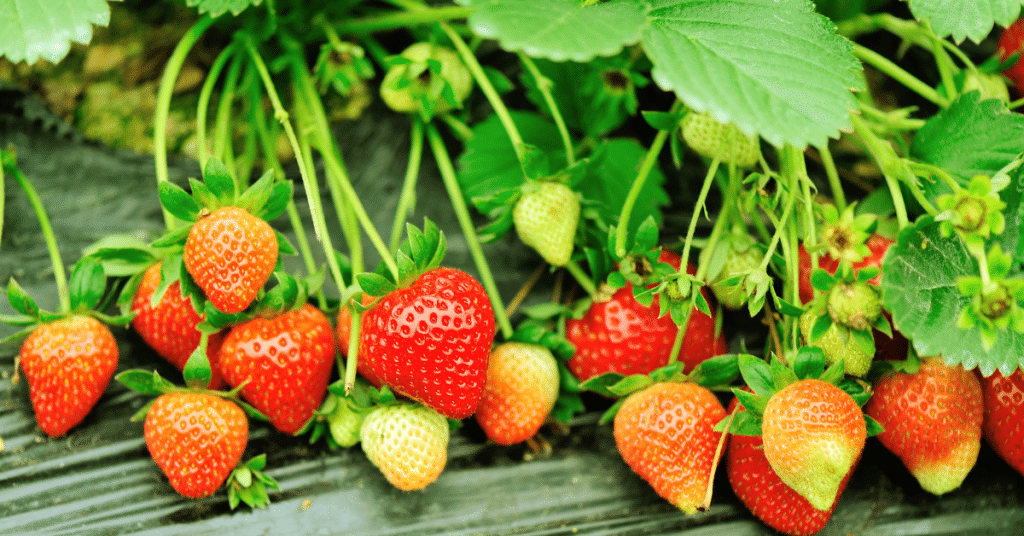
Strawberries are delicious, sweet fruits rich in vitamin C, antioxidants and perfect for desserts and snacks. To grow strawberries, plant them in raised beds or containers, ensuring proper spacing between plants. Provide regular watering, keeping the soil moist but not waterlogged. Mulch around the plants to suppress weeds and conserve moisture.
Regularly fertilize the plants with a balanced fertilizer. Strawberries usually produce runners, which can be rooted to create new plants. You can enjoy a bountiful harvest of sweet, juicy strawberries in your backyard with proper care and attention.
9. Peppermint
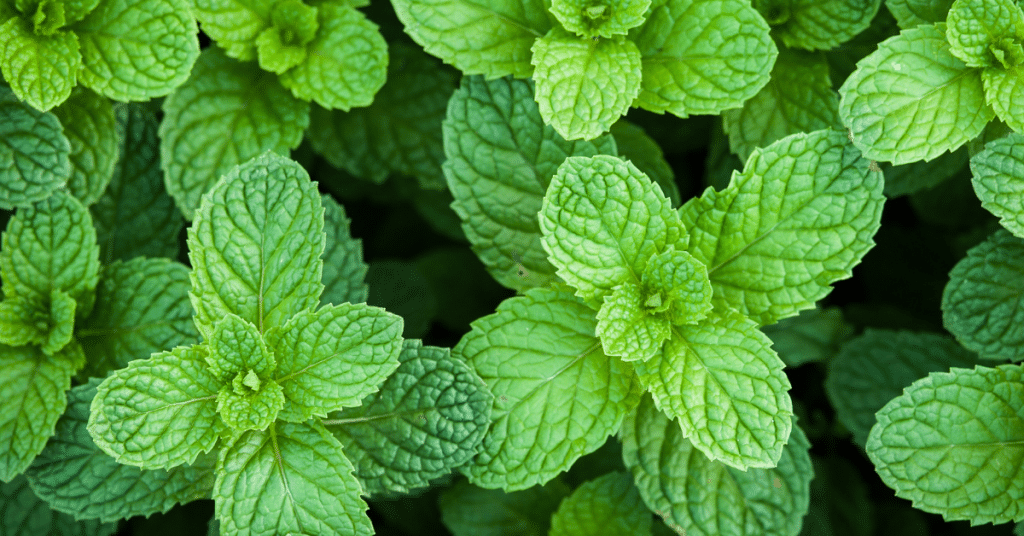
Imagine entering your garden and being greeted by the refreshing aroma of peppermint. This delightful herb adds flavor to beverages and desserts and offers various health benefits.
Peppermint is a hardy herb that thrives in full sun to partial shade. It grows well in containers, making it suitable for small spaces. Provide well-draining soil and water regularly to keep the soil consistently moist. Peppermint tends to spread, so consider planting it in a container to prevent it from taking over your garden. With its invigorating scent and versatility, peppermint is a must-have for any beginner's garden.
10. Kale
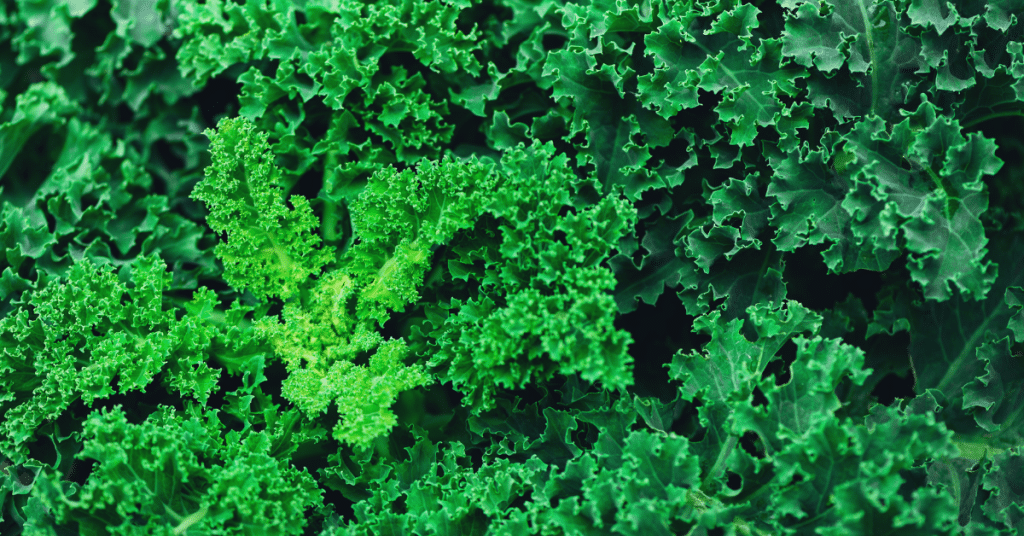
Kale is a nutrient-packed leafy green vegetable rich in vitamins, minerals, and fiber. It's a versatile plant for salads, smoothies, and cooked dishes. You can grow kale easily grow in your garden or containers. To grow kale, start by selecting a sunny location with well-drained soil. Sow the seeds directly into the soil or start them indoors and transplant them later.
Keep the soil consistently moist and provide regular watering. Kale thrives in cool weather, so it's best to plant it in early spring or late summer. Harvest the outer leaves when they reach a desired size, allowing the inner leaves to continue growing. With proper care, you can enjoy a bountiful harvest of fresh kale for your meals.
Troubleshooting
Nurturing Your Garden: Troubleshooting and Problem-Solving
As a beginner gardener, it's normal to encounter some challenges along the way. But fret not! This section explores common issues and provides troubleshooting tips to help you overcome them.
Pest Control: Dealing with Uninvited Garden Guests
Pesky pests can sometimes wreak havoc on your beloved plants. But fear not, for there are organic methods to control them effectively. Introduce beneficial insects like ladybugs, lacewings, or praying mantises to your garden, as they feed on harmful pests. You can also make natural insect repellents using neem oil or garlic without chemical pesticide residue. Regularly inspect your plants for signs of infestation and take action promptly to prevent further damage.
Disease Prevention: Keeping Your Plants Healthy
Diseases can impact the health of your plants, but a little prevention goes a long way. Start by selecting disease-resistant plant varieties whenever possible. Proper spacing between plants allows for good airflow and reduces the risk of fungal diseases. Water your plants at the base to avoid wetting the foliage, as moisture can lead to fungal infections. Remove any infected leaves or plants promptly to prevent the spread of diseases.
Nutrient Deficiencies
Plants, just like humans, need a balanced diet to thrive. If you notice yellowing leaves, stunted growth, or other signs of nutrient deficiencies, it's time to assess the soil's nutrient levels. Organic fertilizers, such as compost, well-rotted manure, or seaweed extract, can provide the necessary nutrients. Conduct a soil test to identify any deficiencies and amend the soil accordingly. You can find a test meter in your local garden center. Remember, a well-nourished plant is a happy and healthy plant.
Weed Management
Weeds are a common nuisance in any garden, but there are organic strategies to keep them under control. Regularly weed your garden, removing them by hand or using a tool like a hoe. Mulching your garden beds with organic materials like straw, wood chips, or leaves can help suppress weed growth by blocking sunlight. Early intervention is key to preventing weeds from taking over your garden.
Extra Tips for Growing The Must Have Organic Plants
In addition to troubleshooting, here are a few extra tips to enhance your gardening journey:
Companion Planting
Consider companion planting, where certain plants benefit from being grown together. For example, planting marigolds alongside tomatoes can help deter pests, while growing herbs like rosemary or thyme near cabbage can repel cabbage worms. Explore the world of companion planting and discover how different plants can support and protect each other.
Composting: Nature's Black Gold
Start composting to create nutrient-rich soil amendments for your organic vegetable garden. Composting kitchen scraps, yard waste, and other organic materials reduces waste and enriches your soil naturally. Utilize compost to improve soil fertility and promote healthy plant growth.
Embrace the Learning Process
Gardening is a lifelong learning experience, so embrace the journey and enjoy every step. Learn from your successes and failures, and don't be afraid to try new plants and techniques. Gardening connects you with nature, providing a sense of fulfillment and joy.
As we conclude our article on the ten must-have organic plants for a beginner's vegetable garden, we hope you feel inspired to embark on your gardening adventure. Remember, organic gardening is not just about plants; it's about cultivating a deeper connection with nature and creating a sustainable and beautiful space of your own. Happy gardening, and may your garden flourish with abundant harvests and natural beauty.
